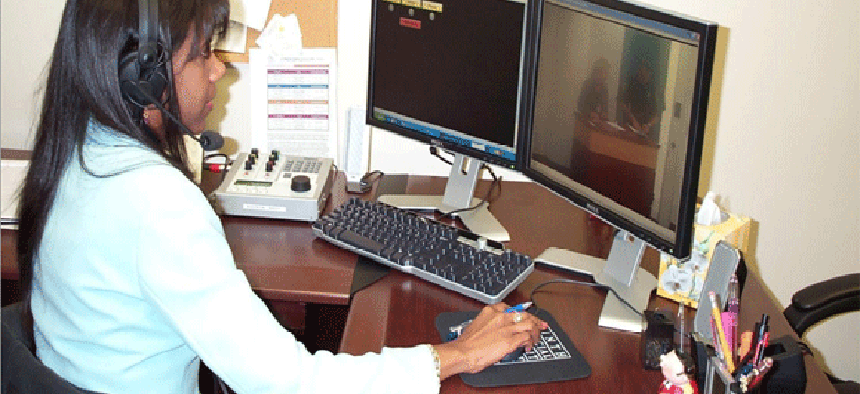Court's virtualized interpreters bridge linguistic and digital divide


Connecting state and local government leaders
A Florida circuit court's Virtual Remote Interpreting system helps it meet the needs of an increasingly multilingual society.
Under Title VI of the 1964 Civil Rights Act, non-English speakers who face the legal criminal system have a right to quality interpretation in their native tongue. It’s a requirement that courts take seriously, in part because the cost to courts for just one violation of Title VI can easily be more than $3 million.
In fact, the state of Florida spends more than $40 million annually to support two foreign languages in state courts, Spanish and Creole. With the courts barely meeting the soaring need for interpreters in those languages, they now they are facing demands for other languages, including Russian, Mandarin and Vietnamese.
The Ninth Judicial Circuit of Florida in Orlando is no exception.
“In an environment of exploding dockets, decreasing budgets and hiring freezes, the Ninth Circuit faced the very real threat of not being able to provide a due process service,” said Matt Benefiel, trial court administrator for the Ninth Judicial Circuit Court.
To keep up, officials from the Ninth Circuit put together a team that developed a virtualized approach to language interpretation. The result was the Virtual Remote Interpreting system (VRI), providing on-demand virtual language interpretation services to the courts.
(From left: J.R. Denman, Matt Benefiel, Honorable Belvin Perry, Jr., Ody Arias)
The team designed and installed a digital court reporting infrastructure connected to the court’s greater network and created four remote workstations throughout Orange and Osceola counties. Using live video captured through courtroom security cameras and an audio platform, interpreters at these remote locations are able to securely interact with the court through Web browsers from any computer linked to the court’s network. In addition, the system lets courtroom personnel access a pool of certified, on-call interpreters and connect with them when needed.
Through a combination of desperation, technical and operational creativity, and strong judicial leadership, “the Ninth Circuit was able to create a solution that dramatically changed the way interpreting services are provided throughout the state of Florida and beyond,” Benefiel said.
The impact of the innovative system has been considerable. Not only has VRI produced meaningful cost savings, the courts are able to supply certified interpretation services to a much greater population, Benefiel explained.
It also has improved the administration of justice. “The court has access to qualified interpreters on demand, which significantly improves the case-flow management,” he said. The Ninth Circuit is now working to extend the VRI program to other resource-strained circuits in Florida, with the goal of reaching 20 circuits by 2013.





